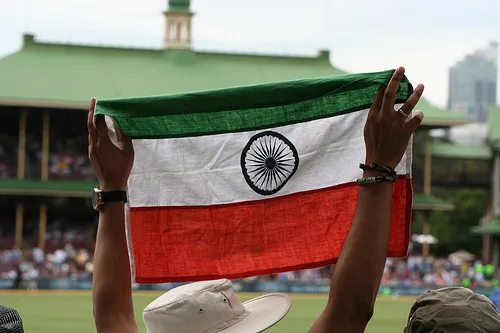
India's diesel deregulation can lower government's subsidy bill by 0.3-0.4% GDP
The move has clear economic benefits.
The Indian government recently deregulated diesel prices and raised the price of natural gas. The deregulation of diesel prices effectively eliminates subsidies on the widely-used fuel variant. According to a research note from DBS, domestic prices were anyway being raised in a staggered manner since January 2013. As of September, losses on the sale of subsidised fuel were wiped out (chart on right) because of a sharp decline in global prices.
The report further said that there are clear economic benefits of the diesel deregulation, especially in an environment of low global prices.
Firstly, making diesel market-determined will lower the government’s subsidy bill by circa 0.3-0.4% of GDP and shield the government’s balance sheet from volatility in global crude prices. Secondly, the trade/current account balance will benefit through low global prices and imply 0.5-0.6% reduction in the deficit.
Here’s more from DBS:
Next, lower crude prices (helped further by deregulation) will be a positive growth impetus, through higher discretionary incomes for households and lower input costs for business/ manufacturers’ alongside agricultural production.
Finally, impact on CPI inflation will be marginal given that the basket is predominantly made of food and non-tradable non-food products.
A 10% movement in crude oil prices below the baseline will lower headline CPI by 20bps, as noted by the central bank. Some of this positive impact might be however offset by higher piped gas and utility prices.
Pulling these factors together, the recent decline in global crude prices along with the deregulation are positive. But, the reverse also holds. Any sharp rebound in global crude prices will filter through as a negative trade shock, especially as petrol and diesel prices are now market-determined.
Such an event will truly test the government’s resolve in keeping prices market-linked and not reviving state interference.
Elsewhere, the ruling BJP party defeated the main opposition party at both state polls, in results out on Sunday.
In Maharashtra, BJP won c122 0f 288 seats becoming the largest party but fell short of full majority. Deliberations are on to form the next government. In Haryana, BJP won 47 out of 90 seats, enough to form the government on its own.
These victories will help the government gradually increase foothold in the upper house of parliament and accelerate the pace of reforms.








![Cross Domain [Manu + SBR + ABF + ABR + FMCG + HBR + ]](https://cmg-qa.s3.ap-southeast-1.amazonaws.com/s3fs-public/styles/exclusive_featured_article/public/2025-01/earth-3537401_1920_4.jpg.webp?itok=WaRpTJwE)









 Advertise
Advertise


